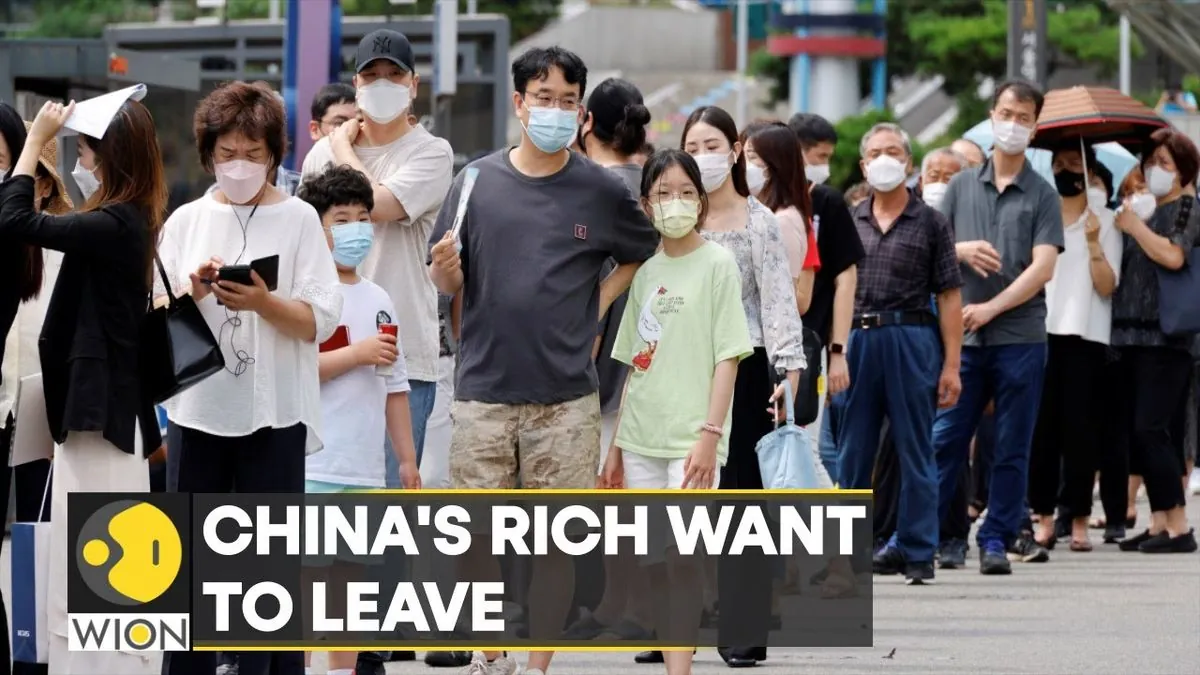China's Wealthy Flee as Economic Woes and Security Concerns Mount
China faces unprecedented capital flight as wealthy citizens seek refuge abroad. Economic stagnation and Xi's policies drive exodus, raising questions about China's stability and its impact on global relations.

The People's Republic of China is experiencing an unprecedented exodus of wealth, as high-net-worth individuals seek to relocate their assets abroad. This trend reflects growing concerns about the nation's economic stability and the policies of President Xi Jinping.
According to recent estimates, approximately 15,000 affluent Chinese citizens are expected to depart the country this year, marking a significant increase from previous years. These individuals are moving billions of dollars through covert means, including shadow banking systems, to destinations such as the Gulf states and Japan.
The Chinese government has implemented over 300 economic reforms to address stagnation, a move hailed by China's Ambassador to the United States as a "landmark event." However, these measures appear insufficient to achieve Xi Jinping's vision of China as a global leader by 2029.

Several factors contribute to this capital flight:
- Xi's distrust and persecution of successful entrepreneurs
- Failure to address key economic issues, particularly in the property market
- Strained relations with major trading partners
- Concerns about potential sanctions related to geopolitical tensions
This exodus of wealth raises questions about China's economic future and its impact on global relations. Xi's focus on military expansion and political influence abroad, rather than domestic prosperity, has alarmed many observers.
"The recent economic reforms represent a landmark event that will help deliver President Xi's vision of China as a prosperous, innovative, and influential world leader by 2029."
Despite official optimism, China's economic challenges persist. The country's GDP growth rate has been declining since 2010, and its aging population presents significant long-term obstacles. The government's "common prosperity" policy, introduced in 2021, has further unsettled wealthy citizens.
The international community is also growing wary of China's economic practices. Concerns about unfair pricing and security risks associated with Chinese electric vehicles (EVs) have led to discussions of potential tariffs. These EVs, like Huawei's digital equipment, are seen as potential "Trojan horses" due to their ability to transmit sensitive data.
As tensions rise, China's massive trade surpluses are increasingly directed towards military expansion and support for allies like Russia, North Korea, and Iran. This shift in priorities has alarmed Western nations and intensified the ongoing geopolitical competition.
The current situation echoes historical lessons about the dangers of appeasing totalitarian regimes. As democracies grapple with the complexities of engaging with China, they must carefully balance economic interests with national security concerns.
In conclusion, the ongoing capital flight from China serves as a stark indicator of the country's internal challenges and the global implications of Xi Jinping's policies. As the situation unfolds, it will undoubtedly shape the future of international relations and economic cooperation.


































